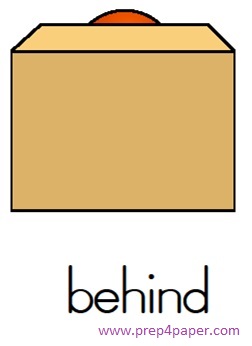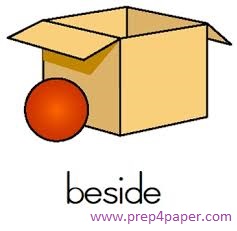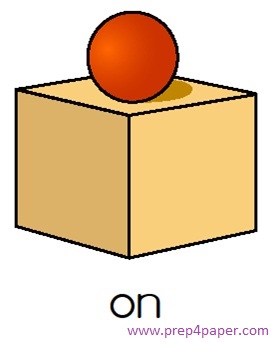Prepositions for Beginners
Miscellaneous Prepositions
|
About: stands for nearness.
Example: "I was about to leave the place."
"He was about to speak out his mind."
Along: is used when we want to say "In the same line"
Example: "He walked along the bank of the river".
After: is used when we want to refer to a sequence.
Example: "One after the other they left."
Across: means from one side to the other.
Example: "He swam across the river."
Against: is used when we refer to oppositiom.
Example: "He is fighting against the communal forces."
At: In addition to its use as a preposition of time and direction it also stands for intended contact.
Example: We discusses the whole matter at the table.
Before: is used when we want to say "in front of".
Example: "The criminal was brought before the judge."
Behind: stands for "at the back of".

Example: "The work was much behind schedule."
Behind: stands for "at the back of".
Example: "The work was much behind schedule."
Beyond: means "on the farther side of".
Example: "This work is Beyond my reach."
Beside: means "by the side of".
Example: "he sat beside me."

Besides: means "in addition to".
Example: "Besides him many other were present."
On: refers to a thing to rest upon.
Example: "I do not depend on him."

Than: is used when we compare two things or persons.
Example: "This book is better than the other."
Through: means across-something.
Example: "I have gone through the record."
Up: is used when we refer to motion to a higher place.
Example: "He climbed up the mountain."
With: is used to denote
(i) association: Example: He came with his son to meet me.
(ii) cause: Example: He is down with fever. (iii) agree: Example: I do not agree with you. (iv) manner: Example: Do not treaty him with contempt. |